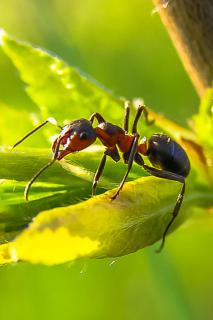

Natural organic ant control is possible and effective. Here are a few tricks to fight against these tiny insects.
Although they aren’t directly pests for plants and for humans, ants quickly turn invasive when they decide to set up shop…
Since ants usually only bring on minimal damage, it is strongly recommended to use organic solutions to treat against them. No need to go for nature-damaging chemical products to get rid of these insects.
Since ants tend to always follow the same paths in a house, it is recommended to attract them outside with products that they particularly like, such as honey, jam, etc.
Some plants directly repel ants, while others offer ant-repelling materials like fruit, flowers and more.
 Same as for the indoors, lemon is very effective.
Same as for the indoors, lemon is very effective.Spread coffee grounds on an anthill to make it move out. Protect target plants by sprinkling a few spoonfuls of ground coffee on the ground around the stem. More on garden uses for ground coffee.
Some plants have the property of attracting ants. For example, they might produce nectar or sweet substances to attract them. Usually such plants have a symbiotic relationship with ants.
Fighting against ants in the garden is often required when aphids have become a nuisance.
Indeed, aphids attract ants with the honeydew they secrete.
If you control the ant population, you’ll be able to control aphid populations, too.